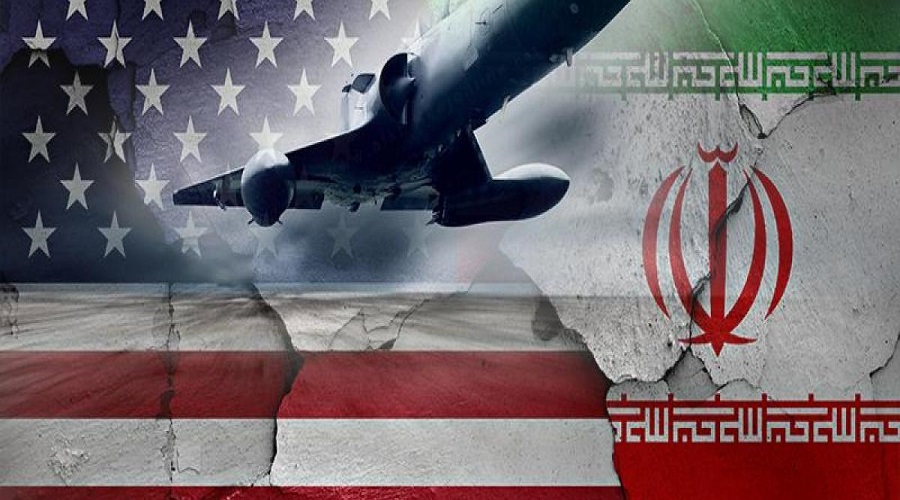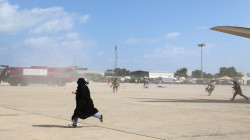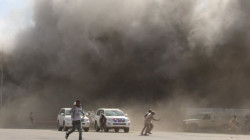The Guardian warns of escalation in the region amid maritime threats near Yemen

Shafaq News / The British newspaper, The Guardian, highlighted the risk of an expanded regional war due to the growing threat to maritime navigation near Yemen. It pointed out the pressure from Washington hawks for escalation and urged the United States to press China to encourage Iran to prevent further regional escalation.
The report first noted the world's horror at the ongoing conflict between Israel and Gaza since October 7th, emphasizing the potential for the war to escalate further. It highlighted the Houthis launching missiles and drones towards Israeli ships, causing global concerns, particularly regarding shipping through the Bab-el-Mandeb Strait.
Pressure mounts on President Biden's administration to respond to Iran and its allies, intending to stop these attacks. Supporters of a strong US response believe it would deter a larger war. However, the report warned that the US might risk engagement in a catastrophic war, involving Yemen, Syria, Lebanon, Iraq, Israel, and Iran.
It hifglifgted the serious global implications, particularly affecting US aid to Ukraine and escalating tensions in Asia, indicating the potential for the US to get entangled in broader Middle Eastern conflicts for decades, which it might not endure.
The British report, referencing the mutual attacks between Iran-supported forces and the US military, highlighted the fortunate avoidance of a regional war until now, despite the miraculous prevention of these limited attacks from escalating into a larger conflict between Iran, Israel, and the United States.
The Guardian continued, stating, "It appears that the current presence of American aircraft carriers off the Israeli coast has deterred Hezbollah from launching large-scale attacks on Israel from the northern front, while the Biden administration has restrained Israel from conducting wide-ranging operations in Lebanon. However, the report expressed concerns that the ongoing harassment of shipping by the Houthis through the Red Sea indicates a potential expansion of the war."
The report observed that it is unlikely the US Navy could intercept all missiles and drones launched by the Houthis indefinitely. Analysts believe that damage to maritime navigation has already occurred. However, the most alarming aspect is the direct economic costs borne by global shipping and oil prices. Before the current crisis, 12% of global trade and 30% of container shipping passed through the Red Sea.
Therefore, the British report suggested that the Houthi attacks have placed the Biden administration in an exceedingly difficult position. It clarified that the longstanding hawkish American stance against Iran demands a forceful response, viewing a show of strength as a means to deter further provocations from the Iranians and their proxies, thereby contributing to regional stability. The report recalled former National Security Advisor John Bolton's criticism of Biden for "failing to create even minimal deterrence," advocating for increased American strikes, including direct attacks on Iran itself.
However, The Guardian considered such actions "a significant gamble," warning that rather than deterring Iran, further strikes might provoke Tehran into attacking, either to safeguard its interests and prestige or to caution the United States against continued aggression.
The report added, "If an Iranian retaliatory strike results in significant American casualties, Washington would immediately face pressure to retaliate," cautioning that this would pave "the path toward a larger regional war that would significantly damage US national interests."
Despite the White House's astute efforts to avoid this danger, the report highlighted that the costs of maritime shipping might escalate to a point where military action against the Houthis could become inevitable. It suggested that tactical strikes against Houthi units on the ground might mitigate the damage to the global economy by weakening the Houthis' capacity to carry out attacks.
However, the report opined that limited American strikes might not deter Iran from supporting further attacks executed by its allies across the entire region. It urged US policymakers not to overlook the reality that this is a global issue, not solely an American concern, emphasizing that numerous other countries have a significant stake in safeguarding trade flows and should feel pressured to take action and assist in resolving the problem.
In this context, the report elucidated that China, struggling to recover from its post-COVID economic downturn, stands to incur significant losses due to the added risks facing commercial shipping through the Bab el-Mandeb Strait. Consequently, it is imperative for Washington and its allies worldwide to exert pressure on Beijing to leverage its ties with Tehran toward encouraging Iranian restraint.
According to the report, it is plausible that matters could lead the United States to resort to striking the Houthi rebels in Yemen if they persist in their assaults on global shipping. Nevertheless, such strikes must remain tactically limited, emphasizing that "the history of military operations, from Bosnia to Kosovo, Afghanistan, and Libya, emphasizes that pressures to expand strikes invariably increase once initiated."
The report concluded that amid escalating tensions fueled by the appalling violence in Gaza, Washington hawks' eagerness to escalate tensions with Tehran, and the globally vulnerable economy, achieving restraint and averting a wider regional war becomes increasingly challenging, which would be the worst-case scenario for US interests.





